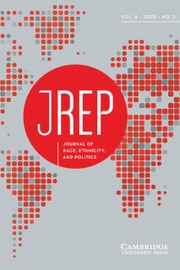Death is an inescapable part of the human experience, but Dying Abroad reminds us that death “poses distinct challenges for minoritized communities in migratory settings” (p. 204). Osman Balkan demonstrates that the difficulties associated with a transnational life lived “out of place” do not end with death, and that after “death out of place,” the posthumous practices of minoritized communities make important social and political claims. For example, local burial within the host country represents a powerful fixed symbol of political membership. Conversely, the repatriation of remains to the country of origin or ancestry serves as a reminder of transnationalism and potential sociopolitical exclusion. Balkan reveals the complex overlapping, and sometimes conflicting, institutions, value systems, actors, and networks that influence these burial decisions. He focuses on Muslims of Turkish and Kurdish descent in Germany to illustrate how the lives and deaths of minoritized populations are changing Europe, and how European patterns of inclusion and exclusion are likewise altering how members of minoritized communities live and die.
Balkan dives into the lives of those working in and experiencing the death industry to gain leverage on questions relating to where dead bodies belong, and what dead bodies teach us about belonging. He offers an ethnographic account rich in detail, personal experience, and photographic evidence from Germany and Turkey. In Germany, Balkan worked as an apprentice to Muslim undertakers and assisted them in every aspect of their work. He also conducted semi-structured interviews with bereaved families and engaged in informal conversations with Muslim community members. In Turkey, he interviewed cemetery and funeral fund administrators, shadowed undertakers, and observed funeral ceremonies. Balkan grounds his ethnographic approach with honest reflection on the advantages and disadvantages of his positionality as a male, second-generation immigrant raised in the United States, but with a deep understanding of Turkish culture, language, politics, and history. He convincingly argues that research on a culturally sensitive and emotionally difficult topic such as death could only be conducted by someone with intimate knowledge of cultural codes. At the same time, he openly wrestles with ethical questions associated with observing and participating in intimate moments of grief and mourning. Though Balkan’s identity and personal background allow him to better understand and relate to his interlocutors, Balkan notes that some spaces are closed to him. For example, he could not engage with many female voices and spaces, and through this admission, he identifies a fruitful area of future research focused on the gendered dimensions of death practices.
The first two chapters in Dying Abroad center on the legal, institutional, and economic aspects of death abroad, covering the material considerations associated with end-of-life decisions in migratory settings. Specifically, Chapter 1 examines the strategies and practices of Turkish Islamic funeral funds, which incentivize cross-border repatriation. The chapter offers an account of how funeral funds work within the broader framework of Islamic civil society organizations to reinforce the connection between the nation and diaspora, and by extension, the dead body. Their approach engages with a form of necropatriotism, affirming the notion that the dead belong in a particular place. Chapter 2 discusses the growing role of Muslim undertakers in providing funerary services for Muslims in Germany. Through rich evidence gleaned from immersive participant observation in Islamic funeral homes in Berlin, the chapter focuses on how the undertakers perform a critical intermediary service, based on their ability to navigate the cultural and religious expectations of their customers and the regulatory institutions of the German state. They become important agents of sociocultural integration, teaching their Muslim community about the state, but also informing the state about the needs of its residents.
The second part of the book focuses on how the rituals and ceremonies associated with death and dying are imbued with symbolic and cultural meaning for minoritized communities. Chapter 3 provides a visual ethnography of Muslim burial grounds in Europe, focusing on how religious, ethnic, national, and individual identities are conveyed on the tombstones of Muslim graves. The chapter draws attention to how, despite centuries of Muslim settlement in Europe, less than one percent of Germany’s burial grounds have dedicated space for Muslims. Though their rarity is problematic, their existence allows Muslims to assert their presence in German society, and to normalize expectations of religious accommodation. Chapter 4 analyzes interviews with individuals with a migratory background to better understand why families choose to repatriate their loved ones to Turkey, or inter them locally in Germany. The chapter identifies funerals as an important moment when the family attempts to reconcile their transnational identities and multiple allegiances. Burial becomes a literal act of place-making, where the presence of the body in the ground creates a sense of ownership and connection, and therefore, for the descendants, an important symbol of belonging.
Dying Abroad is a richly informative book that makes clear contributions to the study of multiculturalism, transnationalism, and citizenship. Though Balkan focuses on Muslims of Turkish and Kurdish descent in Germany, the same challenges and questions around end-of-life practices should resonate with minoritized populations everywhere. And, given the changing demographic patterns in Europe, which includes an ageing Muslim population, the practical and symbolic issues associated with the end-of-life practices of Europe’s Muslims will only grow in importance. The book’s narrative style and fascinating content make the book accessible to scholarly and non-scholarly audiences, and I recommend the book for classroom adoption in undergraduate and graduate courses on migration, citizenship, race and ethnicity, biopolitics, or European politics. I assigned the Introduction and Chapter 2 in my undergraduate course on the Politics of Migration, and my students requested that I assign the whole book the next time I teach the course. Additionally, the book demonstrates the artistry involved in converting a dissertation into an accessible and engaging book manuscript and provides an excellent example of how to persuasively and elegantly incorporate ethnographic fieldwork.


